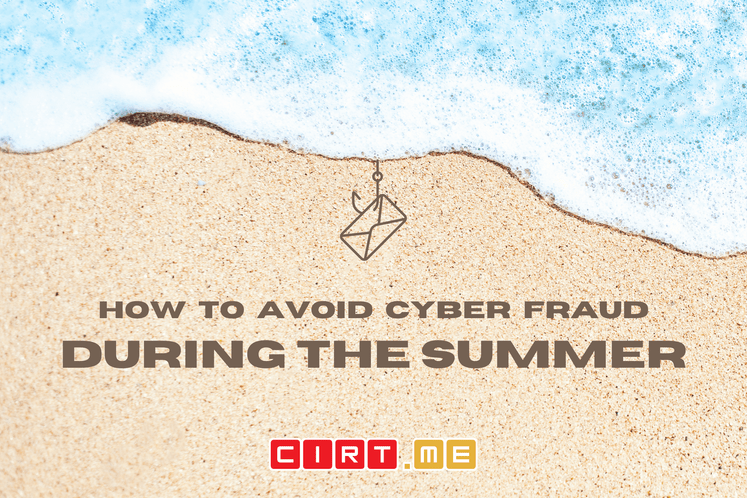- Government of Montenegro
CIRT How to avoid cyber fraud during the summer?
How to avoid cyber fraud during the summer?

Published on: Jul 2, 2024 • 8:23 AM
During the summer, cyber scams become more prevalent as people tend to be less careful while on vacation and may be lured by enticing offers or use unsecured Wi-Fi networks. It's crucial to stay vigilant and take necessary precautions to ensure a safe and worry-free summer vacation, whether you're at home or traveling.
- Fake vacation and travel offers: Scammers often send fraudulent offers for holidays, flights, and accommodations via email, social networks, or fake websites. These offers may appear too good to be true, featuring big discounts or 'last minute' deals. Tip: Always book accommodations and travel through trustworthy websites. Be sure to check reviews and ratings before making any payments.
- Phishing attacks are attempts by fraudsters to trick you into obtaining your personal information through fake emails, text messages, or websites that appear legitimate, such as well-known travel agencies, hotels, or airlines. These attacks happen more often in the summer when people are less careful while on vacation. Tip: Always double-check the sender's email address and avoid clicking on suspicious links or opening attachments. Never share personal or financial information via email or unsafe websites.
- Fake Wi-Fi hotspots: Scammers often create fake Wi-Fi networks at popular tourist sites such as airports, hotels, cafes, and shopping malls. These networks seem real, but their purpose is to steal your data while you're connected. Tip: Avoid making payments, checking your bank account balance, accessing your email, or changing your password while connected to a wireless network. If you need to use public Wi-Fi, consider using a VPN service to protect your connection.
- Identity theft: During the summer, people often share details about their travels on social media without realizing that scammers can misuse this information. Be careful about what you share and how you manage your private information online. Turn off the geotagging option in your posts to avoid revealing your current location to scammers. Tip: Be cautious about the information you share on social media. Set your profiles to private and be selective about your followers.
- ATM fraud: Scammers often install skimming devices on ATMs to steal information from your credit or debit card. Remember to be cautious of ATM fraud, especially in tourist destinations. Tip: To avoid falling victim to these scams, consider using ATMs located inside banks, shops, or in well-lit and busy areas. Always inspect the ATM carefully before inserting your card. If you notice any unusual accessories, parts, or signs of unauthorized access, refrain from using that ATM. Additionally, cover the keyboard with your hand when entering your PIN to prevent it from being seen or recorded by cameras.
- Enjoy your vacation, but remember to prioritize the security of your data!
Related articles:
WARNING - Phishing campaigns targeting bank users Aug 20, 2024
Is this page useful?
